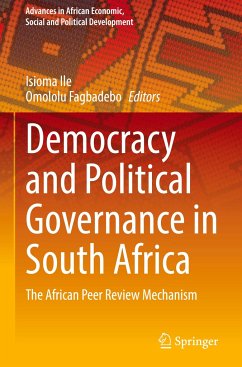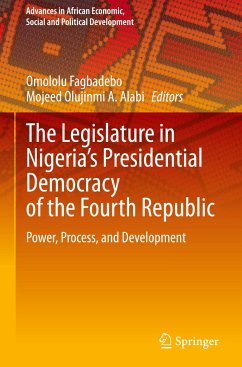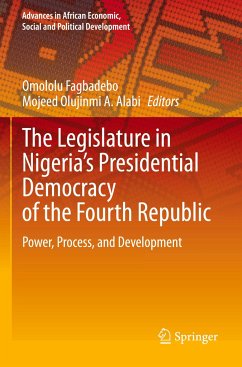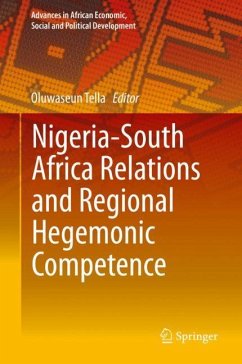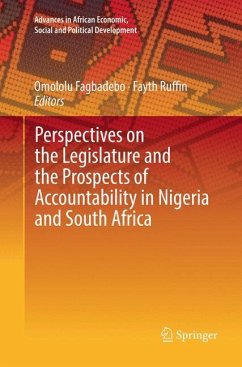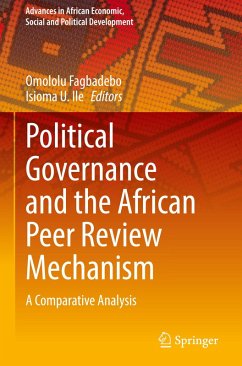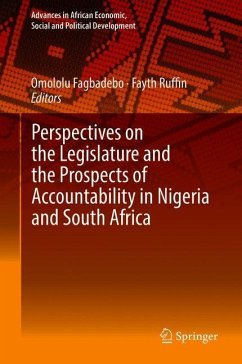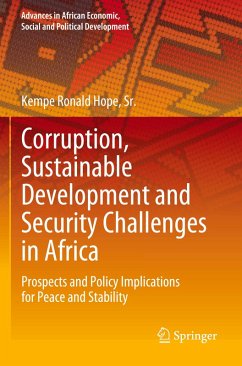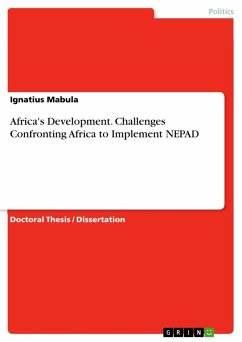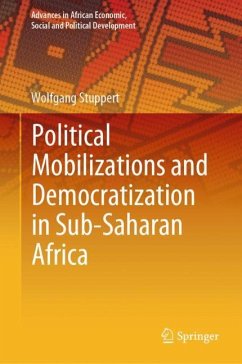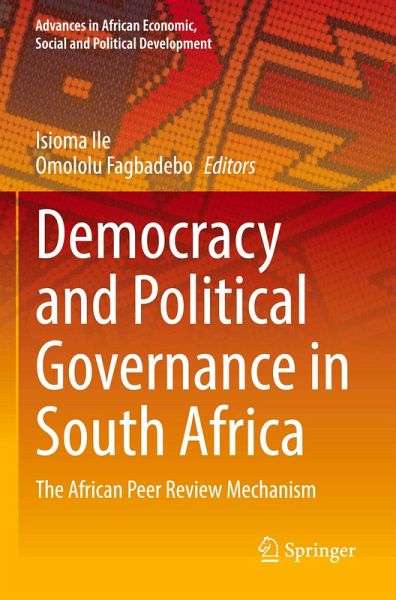
Democracy and Political Governance in South Africa
The African Peer Review Mechanism
Herausgegeben: Ile, Isioma; Fagbadebo, Omololu
Versandkostenfrei!
Versandfertig in 6-10 Tagen
98,99 €
inkl. MwSt.

PAYBACK Punkte
49 °P sammeln!
This book presents a holistic perspective and analysis of democratic practice, processes, and governance in South Africa. It examines the development in the South African governing system and its response to the challenges of the crisis of governance under the influence of the African Peer Review Mechanism (APRM). While doing so, the book's central objective is to examine the progress of the South African government in strengthening democracy and political governance. Each of the contributions follows a similar structure and addresses the following thematic issues: (1) Assessment of the implem...
This book presents a holistic perspective and analysis of democratic practice, processes, and governance in South Africa. It examines the development in the South African governing system and its response to the challenges of the crisis of governance under the influence of the African Peer Review Mechanism (APRM). While doing so, the book's central objective is to examine the progress of the South African government in strengthening democracy and political governance. Each of the contributions follows a similar structure and addresses the following thematic issues: (1) Assessment of the implementation of the core APRM-related programs; (2) Identification of areas of excellence and prognosis for further improvement; (3) Identification of the weak areas of each and how to make the future implementation better, (4) Identification areas to improve democracy and political governance.
A self-assessment strategy initiated by the African Union (AU) in 2002 and adoptedin 2003, the APRM is a voluntary mechanism adopted by countries in the African continent to improve governance in general. As a specialized AU agency, APRM monitors the peer review activities of each African country. It serves as a tool for sharing experiences, reinforcing best practices, identifying deficiencies, and assessing capacity-building needs to foster policies, standards, and practices that lead to political stability, high economic growth, sustainable development, and accelerated sub-regional and continental economic integration.
This book will be useful for and appeal to scholars and researchers in political science, public administration, and the social sciences in general, as well as policy-makers interested in a better understanding of democratic practice and processes, governance, public policy, and the African Peer Review Mechanism.
A self-assessment strategy initiated by the African Union (AU) in 2002 and adoptedin 2003, the APRM is a voluntary mechanism adopted by countries in the African continent to improve governance in general. As a specialized AU agency, APRM monitors the peer review activities of each African country. It serves as a tool for sharing experiences, reinforcing best practices, identifying deficiencies, and assessing capacity-building needs to foster policies, standards, and practices that lead to political stability, high economic growth, sustainable development, and accelerated sub-regional and continental economic integration.
This book will be useful for and appeal to scholars and researchers in political science, public administration, and the social sciences in general, as well as policy-makers interested in a better understanding of democratic practice and processes, governance, public policy, and the African Peer Review Mechanism.





